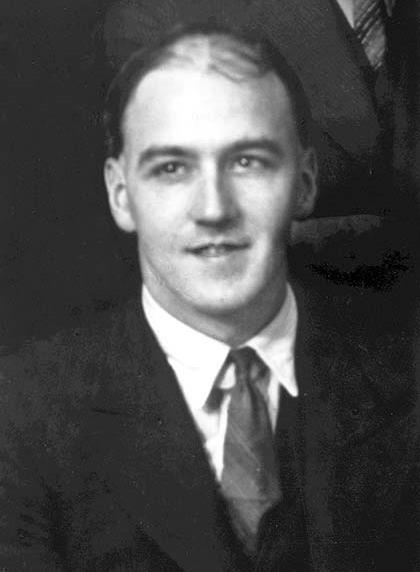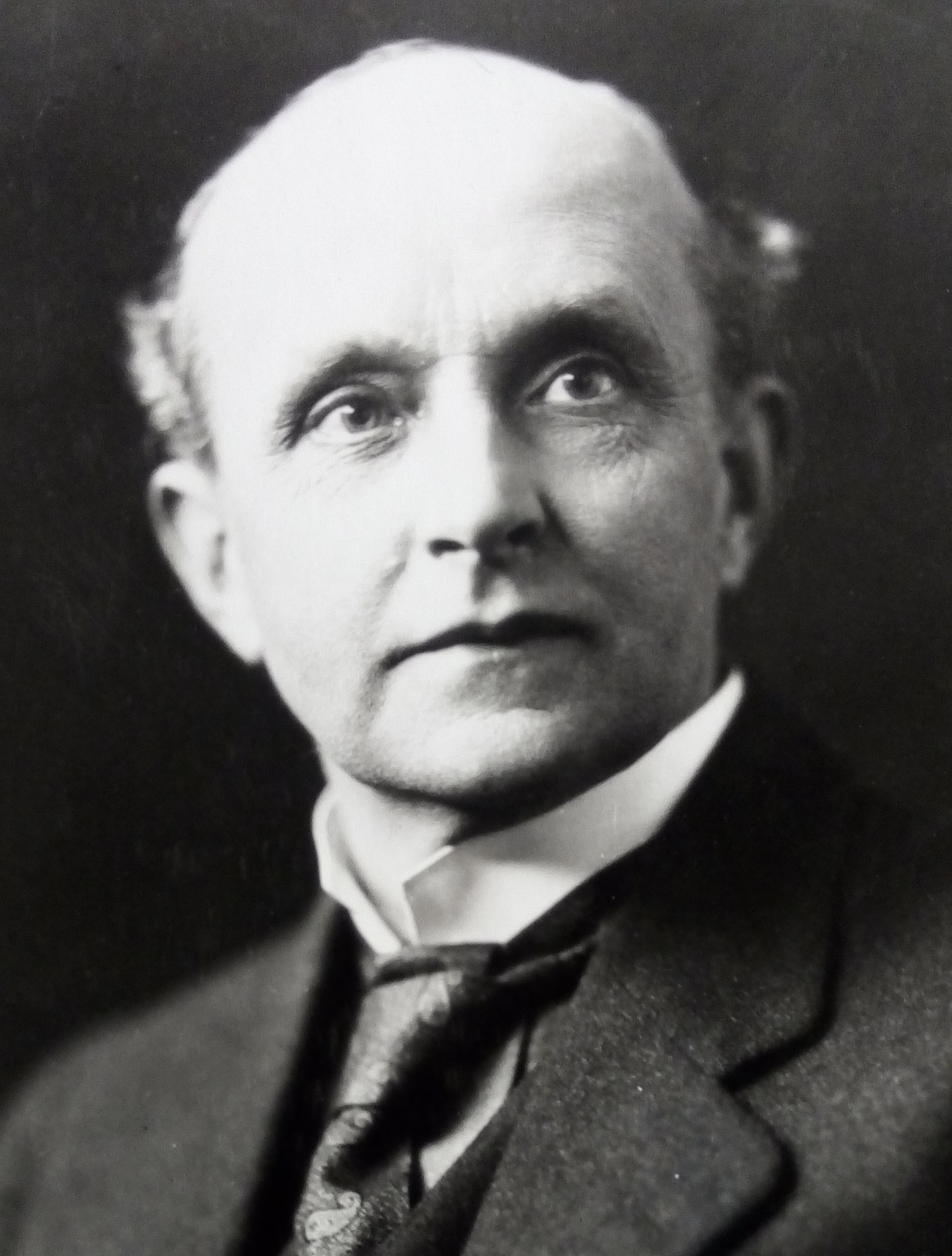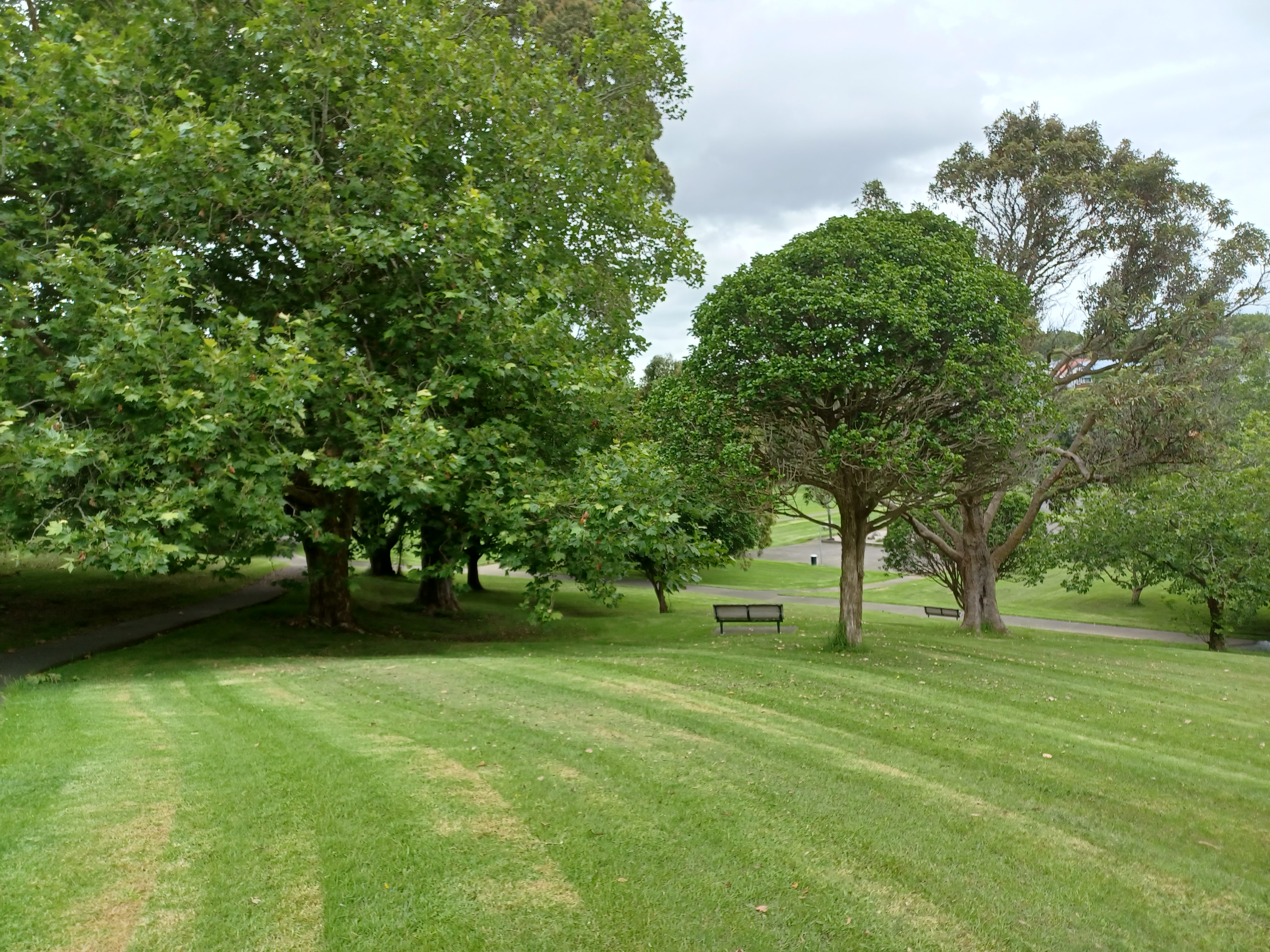|
Norman Douglas (New Zealand)
Norman Vazey Douglas (15 March 1910 – 26 August 1985) was a New Zealand trade unionist and Left-wing politics, left-wing politician. He joined the New Zealand Labour Party in 1932, but when John A. Lee was expelled from the party in 1940, Douglas followed to join the new Democratic Labour Party (New Zealand), Democratic Labour Party. He rejoined the Labour Party in 1952 and represented the electorate in Parliament of New Zealand, Parliament from 1960 New Zealand general election, 1960 until his retirement in 1975 New Zealand general election, 1975, serving time on the Opposition front bench. Biography Early life Douglas was born in Hikurangi in 1910, the son of a policeman. He was raised in a series of several small towns due to his father's job transfers. In 1925 he left school whilst in Mercer, New Zealand, Mercer and became an apprentice baker. He lost his left arm in a duck-shooting accident in May 1927 leading him to give up baking and undertake secondary schooling at P ... [...More Info...] [...Related Items...] OR: [Wikipedia] [Google] [Baidu] |
President Of The New Zealand Labour Party
The President of the New Zealand Labour Party is the highest-ranked organisational figure within the New Zealand Labour Party. The president serves as the chairperson of the party's council and policy council. Since 2022, the office has been held by Jill Day. Role The president is elected by the party delegates at the Labour Party annual conference or, if an early vacancy occurs, a by-election via postal ballot. The president is the chair of the party's governing body, the New Zealand Council, and presides of its meetings and functions. Additionally the president chairs Labour's policy council and party list moderating committee. The president is paid an honorarium for their services. History The post of president of the Labour Party was officially created upon the party's inception in 1916, the inaugural holder was James McCombs James (Jimmy) McCombs (9 December 1873 – 2 August 1933) was a New Zealand Member of Parliament for Lyttelton. Biography Early life and career ... [...More Info...] [...Related Items...] OR: [Wikipedia] [Google] [Baidu] |
Politician
A politician is a person active in party politics, or a person holding or seeking an elected office in government. Politicians propose, support, reject and create laws that govern the land and by an extension of its people. Broadly speaking, a politician can be anyone who seeks to achieve political power in a government. Identity Politicians are people who are politically active, especially in party politics. Political positions range from local governments to state governments to federal governments to international governments. All ''government leaders'' are considered politicians. Media and rhetoric Politicians are known for their rhetoric, as in speeches or campaign advertisements. They are especially known for using common themes that allow them to develop their political positions in terms familiar to the voters. Politicians of necessity become expert users of the media. Politicians in the 19th century made heavy use of newspapers, magazines, and pamphlets, as well ... [...More Info...] [...Related Items...] OR: [Wikipedia] [Google] [Baidu] |
The New Zealand Herald
''The New Zealand Herald'' is a daily newspaper published in Auckland, New Zealand, owned by New Zealand Media and Entertainment, and considered a newspaper of record for New Zealand. It has the largest newspaper circulation of all newspapers in New Zealand, peaking at over 200,000 copies in 2006, although circulation of the daily ''Herald'' had declined to 100,073 copies on average by September 2019. Its main circulation area is the Auckland region. It is also delivered to much of the upper North Island including Northland, Waikato and King Country. History ''The New Zealand Herald'' was founded by William Chisholm Wilson, and first published on 13 November 1863. Wilson had been a partner with John Williamson in the ''New Zealander'', but left to start a rival daily newspaper as he saw a business opportunity with Auckland's rapidly growing population. He had also split with Williamson because Wilson supported the war against the Māori (which the ''Herald'' termed "the ... [...More Info...] [...Related Items...] OR: [Wikipedia] [Google] [Baidu] |
Auckland City Council
Auckland City Council was the local government authority for Auckland City, New Zealand, from 1871 to 1 November 2010, when it and Auckland's six other city and district councils were amalgamated to form the Auckland Council. It was an elected body representing the 404,658 residents (2006 census) of the city, which included some of the Hauraki Gulf islands, such as Waiheke Island and Great Barrier Island. It was chaired by the Mayor of Auckland City. Elections The councillors and the mayor of Auckland City were elected every three years. In the 2007 elections, the voter turnout was 39.4%, down from 48% in 2004 and 43% in 2001. Functions Amongst its other functions, the city council administered more than 700 parks and reserves throughout the country (2008 data).Auckland City Council Annual Report Summary 2007/2008 – Auckland City Council, 3 October 2008 It also had, amongst other things, 2214 km of footpaths, though these were often in bad condition (30% being rated ... [...More Info...] [...Related Items...] OR: [Wikipedia] [Google] [Baidu] |
1935 Auckland City Mayoral Election
The 1935 Auckland City mayoral election was part of the New Zealand local elections held that same year. In 1935, elections were held for the Mayor of Auckland plus other local government positions including twenty-one city councillors. The polling was conducted using the standard first-past-the-post electoral method. Background The campaign featured a selection controversy when the Labour Party selected local businessman Joe Sayegh over prominent lawyer and MP Rex Mason with the blessing of Auckland Labour Representation Committee executive Fred Young. Sayegh was viewed a respectable individual and competent city councillor, but most gave him little chance of beating Citizens Committee candidate Ernest Davis. As Young had been employed by Davis for many years, John A. Lee and several Labour MPs alleged that Young had been bribed by Davis to ensure the selection of a weak Labour candidate for the Mayoralty which caused a rift in the Auckland Labour Party. Sayegh's campaign was ... [...More Info...] [...Related Items...] OR: [Wikipedia] [Google] [Baidu] |
Grey Lynn (New Zealand Electorate)
Grey Lynn is an inner suburb of Auckland, New Zealand, located to the west of the city centre. Originally a separate borough, Grey Lynn amalgamated with Auckland City in 1914. Grey Lynn is centred on Grey Lynn Park, which was not part of the original subdivision of 1883, since the land was too steep and too wet for house construction. In 1914 the land was drained and levelled for playing fields. The park is home to the annual Grey Lynn Park Festival, which attracts around 100,000 visitors on the third Saturday in November. The character of the area is often seen as "arty", and one of being a "traditional home to free-thinkers and anti-establishment types". Demographics Grey Lynn covers and had an estimated population of as of with a population density of people per km2. Grey Lynn had a population of 11,733 at the 2018 New Zealand census, an increase of 891 people (8.2%) since the 2013 census, and an increase of 1,491 people (14.6%) since the 2006 census. There were 4,1 ... [...More Info...] [...Related Items...] OR: [Wikipedia] [Google] [Baidu] |
Department Of Labour (New Zealand)
The Department of Labour ( mi, Te Tari Mahi) was a New Zealand public sector organisation tasked with improving the performance of the labour market and, through this, strengthening the economy and increasing the standard of living. It was replaced with the Ministry of Business, Innovation and Employment on 1 July 2012. History The Department was established under the Liberal Government of New Zealand in 1891 as the Bureau of Industries with Edward Treager as its sole employee. The following year, when W. Pember Reeves was appointed the first Minister of Labour, the department changed its name to the Department of Labour. The Labour Department Act 1893 defined the general duties of and powers of the department, which were to administer the labour laws, acquire and disseminate knowledge of occupations with a view to improving relations between employers and workers, and collect and publish information on industries and rates of wages. Over time, the functions of the departme ... [...More Info...] [...Related Items...] OR: [Wikipedia] [Google] [Baidu] |
Great Depression
The Great Depression (19291939) was an economic shock that impacted most countries across the world. It was a period of economic depression that became evident after a major fall in stock prices in the United States. The economic contagion began around September and led to the Wall Street stock market crash of October 24 (Black Thursday). It was the longest, deepest, and most widespread depression of the 20th century. Between 1929 and 1932, worldwide gross domestic product (GDP) fell by an estimated 15%. By comparison, worldwide GDP fell by less than 1% from 2008 to 2009 during the Great Recession. Some economies started to recover by the mid-1930s. However, in many countries, the negative effects of the Great Depression lasted until the beginning of World War II. Devastating effects were seen in both rich and poor countries with falling personal income, prices, tax revenues, and profits. International trade fell by more than 50%, unemployment in the U.S. rose to 23% and ... [...More Info...] [...Related Items...] OR: [Wikipedia] [Google] [Baidu] |
Grey Lynn
Grey Lynn is an inner suburb of Auckland, New Zealand, located to the west of the city centre. Originally a separate borough, Grey Lynn amalgamated with Auckland City in 1914. Grey Lynn is centred on Grey Lynn Park, which was not part of the original subdivision of 1883, since the land was too steep and too wet for house construction. In 1914 the land was drained and levelled for playing fields. The park is home to the annual Grey Lynn Park Festival, which attracts around 100,000 visitors on the third Saturday in November. The character of the area is often seen as "arty", and one of being a "traditional home to free-thinkers and anti-establishment types". Demographics Grey Lynn covers and had an estimated population of as of with a population density of people per km2. Grey Lynn had a population of 11,733 at the 2018 New Zealand census, an increase of 891 people (8.2%) since the 2013 census, and an increase of 1,491 people (14.6%) since the 2006 census. There were 4,1 ... [...More Info...] [...Related Items...] OR: [Wikipedia] [Google] [Baidu] |
Norman Vazey Douglas
Norman Vazey Douglas (15 March 1910 – 26 August 1985) was a New Zealand trade unionist and left-wing politician. He joined the New Zealand Labour Party in 1932, but when John A. Lee was expelled from the party in 1940, Douglas followed to join the new Democratic Labour Party. He rejoined the Labour Party in 1952 and represented the electorate in Parliament from 1960 until his retirement in 1975, serving time on the Opposition front bench. Biography Early life Douglas was born in Hikurangi in 1910, the son of a policeman. He was raised in a series of several small towns due to his father's job transfers. In 1925 he left school whilst in Mercer and became an apprentice baker. He lost his left arm in a duck-shooting accident in May 1927 leading him to give up baking and undertake secondary schooling at Pukekohe Technical High School for two years. There he became an avid reader and came under the influence of his teacher, Norman Shields, who introduced Douglas to left-wing ide ... [...More Info...] [...Related Items...] OR: [Wikipedia] [Google] [Baidu] |
Mercer, New Zealand
Mercer is a village in the Waikato District Council area of the Waikato region of the North Island of New Zealand. It is 70 km north of Hamilton and 58 km south of Auckland, on the east bank of the Waikato River, 2 km south of its confluence with the Mangatāwhiri River. Prior to the creation of the Auckland supercity in 2010, Mercer was in Franklin District, part of the Auckland Region. History The first attack in the invasion of the Waikato took place on 17 July 1863, when about 15 Māori defenders were killed at Koheroa (a kilometre north – se1:50,000 map. The village was named after Captain Henry Mercer, who was killed at Rangiriri in November 1863. The navy river gun-boat Pioneer was wrecked on the Manukau bar in 1866 and one of the gun turrets forms part of the war memorial. The North Island Main Trunk railway opened to Mercer station on 20 May 1875. A crash in 1940 killed the driver and fireman. Until 1958 many trains stopped for refreshments. The ... [...More Info...] [...Related Items...] OR: [Wikipedia] [Google] [Baidu] |
1975 New Zealand General Election
The 1975 New Zealand general election was held on 29 November to elect MPs to the 38th session of the New Zealand Parliament. It was the first general election in New Zealand where 18- to 20-year-olds and all permanent residents of New Zealand were eligible to vote, although only citizens were able to be elected. The National Party, led by Rob Muldoon, won 55 of the 87 seats over the Labour Party, led by Bill Rowling. The election saw the defeat of the Third Labour Government after only three years in office and the formation of the Third National Government. Background The incumbent Labour Party, following the sudden death of Labour leader Norman Kirk, was led by Bill Rowling, a leader who was characterised as being weak and ineffectual by some political commentators. Labour's central campaign was the so-called "Citizens for Rowling" petition which attacked National leader Robert Muldoon's forthright leadership style. This campaign was largely seen as having backfired on ... [...More Info...] [...Related Items...] OR: [Wikipedia] [Google] [Baidu] |





.jpg)


